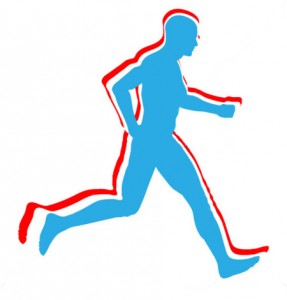 This year’s New York City Marathon is scheduled for Sunday, November 4, 2012. Which means that, if you’ve registered in advance, and if you’re following a traditional 18-week prep schedule, you’ll need to begin your training regimen . . . already. So put down that Krispy Kreme, lick your fingers, and figure out where it was you last saw those running shoes . . .
This year’s New York City Marathon is scheduled for Sunday, November 4, 2012. Which means that, if you’ve registered in advance, and if you’re following a traditional 18-week prep schedule, you’ll need to begin your training regimen . . . already. So put down that Krispy Kreme, lick your fingers, and figure out where it was you last saw those running shoes . . .
But wait, you say, I’m not a serious runner. In fact, I get tired driving 26 miles. And even if I were tempted to do something as loony as train for a marathon, God help me, what about my (fill in the blank: job, family, novel-in-progress)?
I first discovered running – or was it the other way around? – while in law school, in Boston, in the late 1970s. This was ground-zero for U.S. distance-running, a time and place when it was not uncommon for me to see guys like Bill Rodgers and Alberto Salazar circling the Chestnut Hill reservoir on my nightly stress-busting forays from my Commonwealth Avenue apartment.
Endurance athletics, alas, proved not to be my strong suit, and I’ve never threatened the podium in any of the dozens of road and trail races I’ve entered over the years. But I’ve always enjoyed the personal challenge, not to mention the mental and physical benefits of regular training, such that the habits I developed in my student days have stayed with me well into middle age, where I still run at least three times per week – and have for nearly 35 years. By my calculation, that pencils out to around 25,000 miles, and 70 or so pairs of running shoes.
Wasted time? Hardly. In my second career as an author, and now having run three marathons and written three novels, I can draw some parallels between the two – parallels that should apply with equal force to lawyering, or to parenting, or to any of life’s endeavors that requires time and effort and single-minded dedication.
But first a story.
My first-ever marathon was the 1984 New York City, for which I naively trained by running as far as I could as fast as I could, night after night, for two solid months. I worked my way up to 14-milers at an eight-minute pace, figuring that the crowds and adrenaline would carry me to the finish. I figured wrong. Race day found me slowing at mile 18, and mostly walking to mile 20, where I bonked so badly I could no longer put one foot in front of the other. I sat – first in the street, then on the bumper of an ambulance. But I eventually managed to get up, and stagger, and walk some more. Then I found myself jogging again, through the sun-dappled hills of Central Park and onto 59th Street, where I finished in a humiliating, exhilarating 5:59.
To this day, I regard that race as the greatest achievement of my life.
Why? Because I didn’t quit. In fact, I vowed then and there to run again in New York, which I’ve done every ten years. And though my performance has improved markedly with each return visit, the lessons I learned in that first, torturous race – lessons I’ll here call the “Three Ps” – have remained immutable and indelible, sustaining me still in my middle-aged writing life. They are:
- ͦPreparation. It takes more than ideas and enthusiasm to begin a novel, given that THE END lies more than a year and a hundred-thousand words down the road. Each new book is its own epic journey, requiring the kind of research, organization, outlining, and mental preparedness for which marathon training is uniquely suited. Approach the process lightly, and you’re likely to hit the Wall – or to never reach the start line. Know and respect the course, and you just might wear the laurels.
- ͦ Perspiration. There are days when the words won’t come, and when the finish line looks to be a hundred miles away. That’s when you need to put one foot in front of the other, pushing through the pain and refusing to quit. You might not love what you’re writing on those days, but at least you’re moving forward. As Nora Roberts once said, you can’t edit a blank page.
- ͦ Perseverance. It was E. L. Doctorow who likened writing the novel to driving on a foggy night, in that you can only see as far as your headlights, but you can make the whole trip that way. So too the marathon, in which you can only see a few blocks up the road, but with faith and persistence, you’ll eventually get to the finish.
So yes, I’ll keep on running, for as long as my aging joints allow. Because the road offers valuable lessons. And the foremost of these is: never, ever give up.
